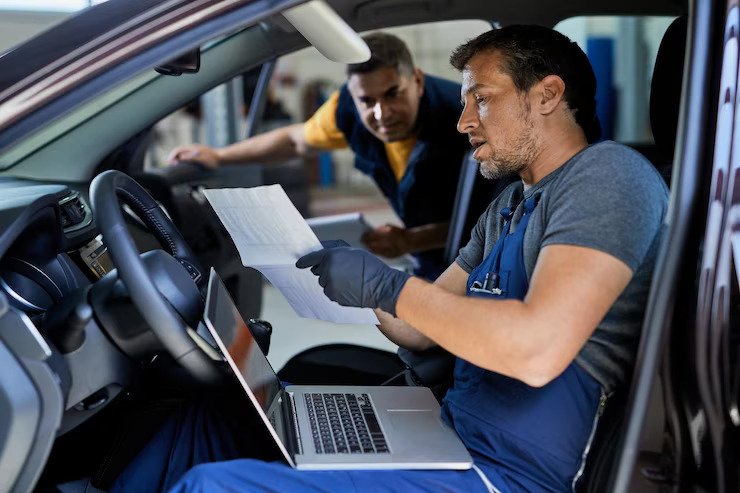Best Practices For Transportation Businesses To Contribute To Sustainability
3 Mins Read
Published on: 12 July 2023
Last Updated on: 15 July 2024

toc impalement
According to the Environmental Protection Agency, the transportation sector accounts for approximately 29 percent of the U.S. greenhouse gas emissions. Quite evidently, this sector is among the prime contributors to these emissions- highlighting the urgent need for change.
And as consumers and different industries increasingly focus on sustainability, transportation businesses cannot afford to lag behind.
Perhaps, we can also say that in the pursuit of green evolution, adapting to sustainable practices isn’t just a choice but a necessity.
That’s why transportation businesses must follow the practices given below and contribute to a sustainable future.
Prioritize Efficient Route Planning
Efficient route planning is fundamental to reducing fuel consumption and carbon emissions. For this purpose, transportation businesses can use smart tools and technology. It will help them find the most direct and effective paths for delivering goods or transporting people.
It will also provide them with real-time data, which helps reduce the distance traveled, avoid unnecessary detours, and minimize the time spent idling in traffic.
Ultimately, efficient route planning helps businesses in making smart decisions. It saves fuel, reduces pollution, and saves money by cutting unnecessary expenses. Moreover, it improves overall productivity and customer satisfaction by ensuring timely deliveries.
Adopting Fleet Electrification

One of the reasons why the transportation sector contributes significantly to carbon emissions is because of the large number of vehicles in their fleets. These vehicles consume a lot of oil- hence produce pollution.
Unfortunately, fleets are the foundation of transportation, so businesses cannot simply reduce or eliminate them completely. However, adopting fleet electrification can potentially change the way fleets operate and make them more eco-friendly. It’s because it involves replacing traditional vehicles in the fleet with Zero Emission Vehicles (ZEVs) like electric vehicles (EVs).
These vehicles run on electricity instead of gasoline or diesel, producing zero emissions. That means fleet electrification can assist transportation businesses in making a positive impact on the environment- reducing their carbon footprint and promoting sustainability.
Embrace Alternative Fuels
While electric vehicles are gaining momentum, alternative fuels (derived from renewable sources) can also play a vital role in reducing emissions. These typically include biofuels, such as biodiesel and ethanol, and can be used as a substitute for conventional diesel and gasoline, respectively.
Because these fuels are made from agricultural waste and plant-based materials, they help businesses reduce pollution and promote sustainability. As an added benefit, alternative fuels can help boost brand visibility and establish the company’s goodwill in the market.
Invest in Driver Training and Technology

Last but most importantly, contributing to sustainability requires collected efforts. That’s why businesses must educate their employees and leverage advanced technology.
Employee training here includes teaching drivers eco-friendly driving techniques, such as reducing idling time, maintaining steady speeds, and avoiding aggressive acceleration. This can result in substantial fuel savings and ensure the driver’s safety.
In addition to this, technology like telematics systems can be installed in vehicles to monitor driver behavior and provide real-time feedback. These systems collect data on factors like speed, acceleration, and fuel usage, allowing companies to identify areas for improvement and optimize fuel efficiency. Ultimately assisting transportation businesses in boosting sustainability.
Final Words,
When it comes to boosting sustainability, every small step counts. So, transportation businesses must take the actions discussed above and contribute to a healthier and more sustainable planet for generations to come.
Read Also:


















Comments Are Closed For This Article